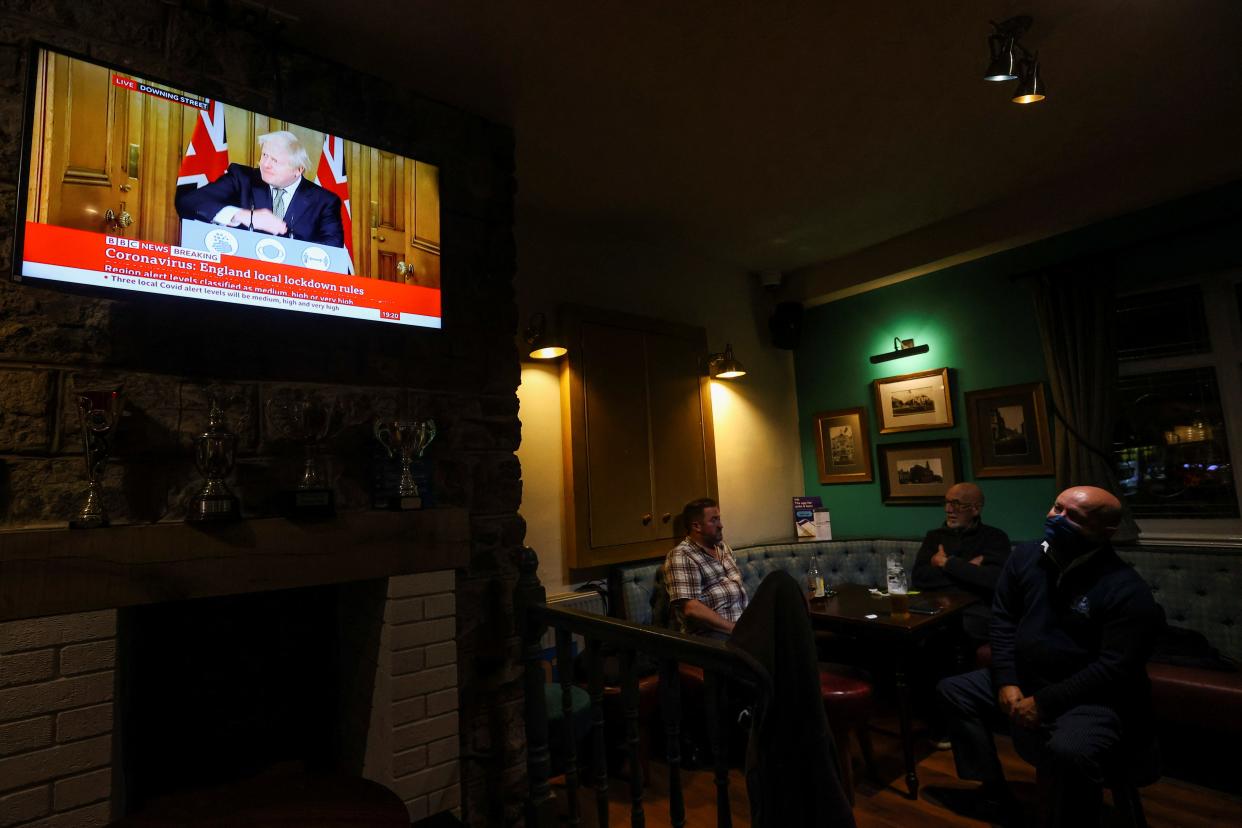Majority of public backs half-term ‘circuit-breaker’ lockdown

A sizeable majority of the public back the introduction of a circuit-breaker lockdown over the October half-term, according to a YouGov poll.
YouGov asked more than 3,390 adults in Great Britain on Wednesday whether they would support or oppose two weeks of tougher restrictions later this month.
Some 68 per cent of respondents said they would support the measure, with 20 per cent saying they would oppose them – 12 per cent said they did not know.
The poll suggested 65 per cent of Conservative voters would back a circuit-breaker, compared to 76 per cent of Labour voters and 75 per cent of Liberal Democrats.
It comes as leading scientists have suggested that a short lockdown – possibly over Christmas – could prevent the NHS being overwhelmed and potentially reduce the death toll this winter.
Graham Medley, professor of infectious disease modelling at the London School of Hygiene and Tropical Medicine and a member of the Scientific Advisory Group for Emergencies (Sage), said it may be too late to implement a two-week circuit-breaker over the October school half-term but that December could be an option.
Prof Medley said thousands of deaths could be prevented up to January with a circuit-breaker. Although that did not necessarily translate into lives saved from coronavirus in the long term, lives would undoubtedly be saved through the NHS not becoming overwhelmed by Covid-19 cases and the knock-on impact that would have on other care.
“I think that would be the point of it, the point of it is to stop hospitals getting to a level where they cannot cope with other conditions,” he said.
The modelling paper written by Prof Medley and colleagues sets out that deaths could possibly reduce for the rest of the year from about 19,900 to 12,100. Hospital admissions could be reduced from 132,400 to 66,500.
The findings are likely to add pressure on the prime minister, Boris Johnson, who clashed with Sir Keir Starmer over the Labour leader’s call for a short circuit-breaker lockdown during Prime Minister’s Questions on Wednesday.
Mr Johnson accused Sir Keir of opportunism and called on him to put pressure on his party’s local leaders in northern England to accept tighter restrictions under the new multi-tier system.
Sir Keir’s call for a lockdown fractured the fragile consensus on the government’s coronavirus response in Westminster, and in the Commons he suggested the prime minister’s failure to follow scientific advice had cost lives.
The Labour leader said since the Sage advice was given on 21 September “the infection rate has quadrupled, hospital admissions have gone from 275 a day to 628 a day in England, yesterday 441 Covid patients were on ventilators and the number of deaths recorded was – tragically – the highest since June 10”.
“That’s the cost of rejecting the advice,” Sir Keir told Mr Johnson.
But the prime minister defended his approach, saying: “The whole point is to seize this moment now to avoid the misery of another national lockdown – into which he wants to go headlong – by delivering a regional solution.”
And he urged Sir Keir to “get on to his Labour friends in those parts of the north of England where we want to work with them to put those very stringent measures in place in order to deliver the reductions that the whole country wants to see”.
Additional reporting by Press Association
Read more
Two-week ‘circuit breaker’ lockdown could save 7,000 lives, Sage says
Boris Johnson says national circuit-breaker can't be ruled out
Which countries have tried circuit-breakers and have they worked?

 Yahoo News
Yahoo News 
